Department of Nursing
Nursing (MSN)
Dr. Euwanna Heard
Graduate Nursing Program Coordinator
eheard@bowiestate.edu
Advanced practice nursing roles are a key component to providing quality healthcare. At Bowie State, our expert faculty prepare graduate students to meet those needs with a curriculum focused on health policy development, research, health promotion, management and care of diverse and vulnerable populations. Housed in the award-winning Center for Natural Sciences, Mathematics & Nursing, the MSN program offers two tracks: Family Nurse Practitioner and Nurse Educator. Both options offer a clear path to enhance and enrich your nursing career.
ACEN Accreditation
The master’s, master’s/post-master’s certificate program at Bowie State University located in Bowie, Maryland is accredited by the:
Accreditation Commission for Education in Nursing (ACEN)
3390 Peachtree Road NE, Suite 1400 Atlanta, GA 30326
(404) 975-5000
The most recent accreditation decision made by the ACEN Board of Commissioners for the master’s, master’s/post-master’s certificate program is Continuing Accreditation.
View the public information disclosed by the ACEN regarding this program.
The Master of Science in Nursing program prepares professional nurses for advanced practice roles and for doctoral study. Students will:
- Translate current research evidence to improve policies, procedures and practices in clinical and educational settings
- Employ communication technologies and information systems to improve outcomes in nursing education and in practice settings
- Demonstrate organizational and systems leadership in nursing education and in clinical practice to improve the quality of care to patients.
- Demonstrate high-quality nursing care and educational standards in the design and delivery of healthcare services to vulnerable and underserved populations.
- Incorporate legal and ethical principles in clinical practice and nursing education.
End of Program Student Learning Outcomes (EPSLOs)
- Integrate theoretical models from nursing science and related disciplines to guide practice that is designed to promote the health and wellness of clients across the lifespan, and the application of methodologies in nursing education.
- Utilize evidence-based practices to promote the development of professional nursing roles, ensure quality improvement, client safety, and the application of best practices.
- Translate current research evidence into practice to improve policies, procedures, and practices in clinical and educational settings.
- Employ communication technologies and information systems to improve outcomes in nursing education and in practice settings.
- Advocate for policies that improve health outcomes for vulnerable and underserved populations, and the profession of nursing.
- Demonstrate organizational and systems leadership in nursing education, and in clinical practice to improve the quality of care to clients.
- Engage in interprofessional collaboration for the improvement of health and learning outcomes of individuals and populations.
- Demonstrate cultural competence, high-quality nursing care, and educational standards in the design and delivery of health care services to vulnerable and underserved populations.
- Incorporate legal and ethical principles in clinical practice and nursing education.
The BSU graduate nursing program is accredited by:
(ACEN) Accreditation Commission for Education in Nursing, Inc.
3343 Peachtree Road, NE
Suite 850
Atlanta, Georgia 30326
(404) 975-5000
www.acenursing.org
